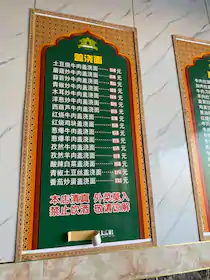China compels Uighurs to work in shoe factory that supplies Nike
February 29, 2020LAIXI, China — The workers in standard-issue blue jackets stitch and glue and press together about 8 million pairs of Nikes each year at Qingdao Taekwang Shoes Co., a Nike supplier for more than 30 years and one of the American brand’s largest factories.
They churn out pair after pair of Shox, with their springy shock absorbers in the heels, and the signature Air Max, plus seven other lines of sports shoes.
But hundreds of these workers did not choose to be here: They are ethnic Uighurs from China’s western Xinjiang region, sent here by local authorities in groups of 50 to toil far from home.
“We can walk around, but we can’t go back [to Xinjiang] on our own,” said one Uighur woman in broken Mandarin as she browsed the street stalls at the factory gate on a recent afternoon. Nervous about being seen talking to a reporter, she quickly scurried away.
The Uighur workers are afraid or unable to interact with anyone in this town, north of Qingdao, beyond the most superficial of transactions at the stalls or in local stores, vendors say. But the catalyst for their arrival here is well understood.
“Everyone knows they didn’t come here of their own free will. They were brought here,” said one fruit-seller as she set up her stall. “The Uighurs had to come because they didn’t have an option. The government sent them here,” another vendor told The Washington Post.
The Post did not ask for their names, out of concern for their safety and so they could discuss an issue that is highly sensitive in China. (While visiting Laixi, this Post reporter was surrounded by seven police officers, questioned, and ordered to leave town.)
…
At the front gate, the Taekwang factory looks like any other in China. Rows of long buildings sit behind a gate where three flags flutter: the company ensign and a Chinese flag, but also a South Korean one, reflecting the parent company’s home base.
Inside, the workers’ ideology and behavior are closely monitored. At a purpose-built “psychological dredging office,” officials from Taekwang’s local women’s federation conduct “heart-to-heart” talks and provide psychological consulting to encourage integration, according to photos of the offices published by state media.
Along the side, the facility resembles a prison. There are watchtowers with cameras pointed in all directions and barbed-wire fences atop the walls, which feature Communist Party propaganda posters extolling President Xi Jinping’s “China dream.” “All ethnicities are united as one family,” says one placard.
There is a special police station equipped with facial-recognition cameras and other high-tech surveillance that workers must pass through when they enter and exit the factory.
The Uighurs are segregated from the Han workers, both physically and by language, according to more than a dozen local merchants and workers who spoke to The Post about the situation inside the factory.
“They don’t speak Mandarin, and we never have any interaction. We just happen to work in the same factory,” said one middle-aged Han woman as she left work for the day.
“We have two cafeterias,” she said. “Chinese workers eat in one and Xinjiang workers go to a separate one. The Uighur workers are allowed to wander around near the compound, but have to return to their dorms later.”
The workers live under the watchful eye of their cadre manager in dormitory buildings opposite the police station.
